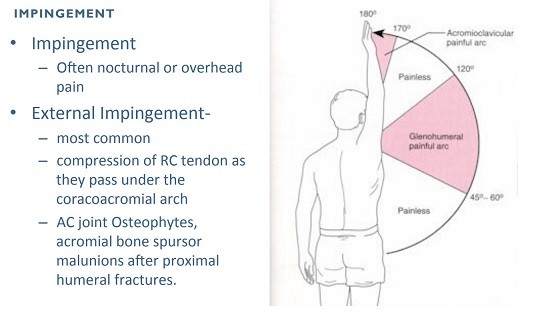Shoulder Specialist London
Do you experience any type of shoulder injury, background shoulder pain and would like to get rid of the pain you have in your shoulder rehabilitating your injury?
If you would like to benefit from rehab certainty training with a long term established Shoulder Specialist in London, you are in the right place.
The shoulder is a very complex part of your body, and the important shoulder structure is divided into a few categories:
- Bones
- Joints
- Ligaments
- Tendons
- Muscles
- Nerves
- Blood vessels
- Bursae
This gives you an idea how complex is the structure of your shouder.
Do you have a question about your shoulder injury, and you would like this to be answered?
Contact me now through this link, HERE.
I professionally support you to improve your shoulder stability, balance, flexibility and strength, to decrease and get rid of your shoulder pain, stabilising and bringing back functional shoulder.
Taking into account your sport medical doctors diagnosis and physiotherapists advise, I will personalise everything helping you to move from a functional state into an optimum state of movement.
I provide you with a specialist exercise package support creating a positive functional outcome using personalised shoulder rehabilitation corrective exercises, corrective Pilates and advanced elite personal training.
I train you at your chosen time and convenient greater London location.
The shoulder joint has a high degree of mobility (making it just a bit more unstable compared with other joints) thus, as we move, play and try to perform we often compromise shoulder balance and stability using movements requiring an over the edge effort, and increased mobility.
Many times we start to experiencing pain by putting extra strain on our shoulders, and down the line there is an event where a trauma and a shoulder injury will occur.
There are many muscles working together creating different types of movements therefore the perfect shoulder symphony is achieved only when your shoulder joint, ligaments and muscle are strong, stabilised and in balance according with the movements they must perform.
- Do you live in London and are suffering from a shoulder injury ?
Contact me now through this link HERE for a shoulder rehab programme that’s effective and made just for you !
Once your shoulder is painful, you feel restricted.
Provided that the shoulder is a really vital joint in our bodies. Shoulder pain interferes with many activities of daily living including dressing and undressing, showering and combing hair.
And I totally get it… nothing hurts more than pain except feeling limited, restricted or disable.
For this reason, shoulder rehabilitation London is getting more attention than ever.
If you are also looking for shoulder rehabilitation London most wanted type of rehabilitation among all injuries, it might help you if you determine the reason of your injury.
Because, as an expert personal trainer in shoulder rehabilitation London, I can tell you that rehabilitation for shoulder pain due to a frozen shoulder is completely different from a rehab programme to treat rotator cuff tear or shoulder impingement.
If you are not sure which programme works for you, feel free to contact Jazz Alessi for a free consultation.
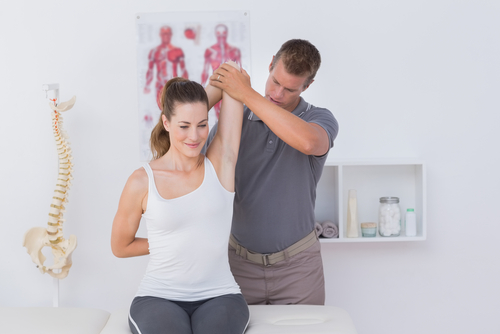
What Does Your Shoulder Joint Complex Is Made Off ?
- Four joints,
- Three ligaments,
- Three types of muscle like superficial (extrinsic), deep muscles (intrinsic) and muscles of the shoulder and arms the shoulder joint is one of the most complex joints in your body.
The four rotator cuff muscles like the supraspinatus, subscapularis, infraspinatus and teres monor muscles are connecting the scapula with the humerus and in coordination with all the other muscles are stabilising the shoulder joint.
- Whilst the shoulder joint itself is called the Glenohumeral joint in fact there are “four joints” making up the shoulder joint and here are the rest
- Acromioclavicular joint
- Sternoclavicular joint
- Scapulothoracic joint
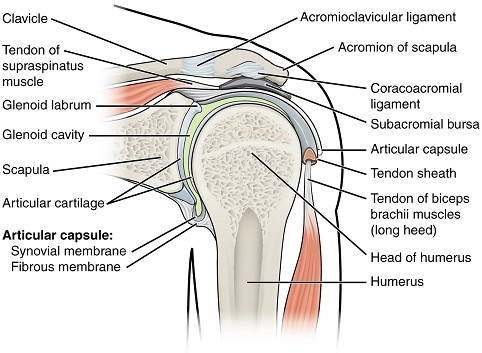
The complex shoulder joint is also stabilised by four ligaments:
- Glenohumeral ligaments or GHL stabilising the shoulder and keeping it as safe as possible from a shoulder dislocation to occur
- Coraco acromial ligament or CAL is one of the cause of the shoulder impingement syndrome
- Coraco clavicular ligament or CCL is a very resistant and strong ligament however, if you fall on your shoulder a shoulder dislocation could occur
- Transverse humeral ligament or THL among other things with a biceps stabilising role as well as a potential pain generator due to the free nerve ending presence (although there are no mechanoreceptors)
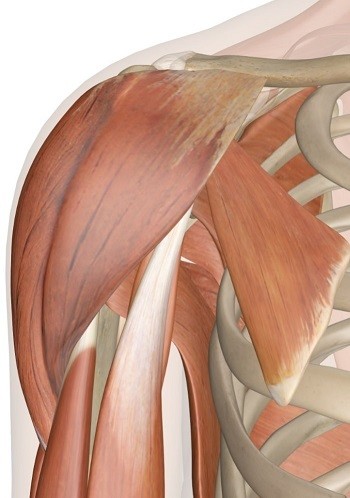
Your shoulder joint is a very mobile joint thus, repetitive movements, pattern overload occurs, and as you move, play and perform – therefore, the stability of your shoulder is compromised for types of strenuous movements requiring an increase in mobility.
Many times, repetitive movements, pattern overload and abnormal movements or injury causing events are putting extra strain on your shoulder.
You may also experience some pain, and it is just a matter of time until a shoulder injury will occur.
If you experience any type of shoulder pain or a shoulder injury we are specialised in these types of injuries and can help you.
Your personalised injury rehab programme is delivered at your convenient London location.
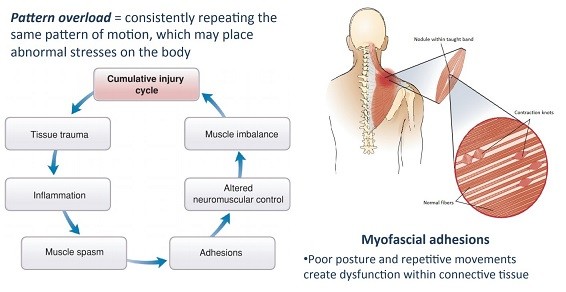
Shoulder Physiotherapy London
Let me know when you would like to return to optimum exercise without imbalances and pain or to competing in your favourite sport, and I will help you to successfully rehabilitate your shoulder injury.
- Do you live in London and are suffering from a shoulder injury ?
FAQs
1. How do you rehabilitate your shoulders?
The first step towards a successful shoulder rehab is to determine the cause, mechanism, severity and nature of injury. This way based on a comprehensive assessment you will enjoy a successful and a very effective laser-sharp customised rehab programme that is made based on your very personal shoulder rehab needs.
2. What are 2 warning signs of a rotator cuff tear?
Two warning signs of rotator cuff tear may include recurrent shoulder pain with limited overhead movement in addition to a cracking or a popping sound inside the joint.
3. How long should you rest your shoulder before rehab?
If your injury is acute, you will be advised to rest for 3-4 days in order to allow the inflammation to subside before you start your rehab. But if your injury is chronic or has been there for a while, you can start rehab right away.
4. What is the fastest way to recover from shoulder injury?
The fastest way to recover from shoulder injury is by following the right customised rehabilitation programme which is assessment based from the first shot instead of putting time and effort into generalised wrong programmes.
The right rehab programme will be based on professional assessment of your symptoms and shoulder problems followed by a laser-sharp customised plan to conquer these symptoms.
5. What are some exercises to strengthen the Shoulder?
A strong shoulder starts at strong rotator cuff muscles, strong scapular muscles and proper bone alignment. To achieve all that, your long term rehab personal trainer not only will focus on strengthening your rotator cuff and upper back muscles, but will also recommend some capsule stretch and postural correction.
6. Can Frozen Shoulder be treated with exercises?
Even though a frozen shoulder is often referred to as self-limiting, it can take very long to heal and may leave serious joint dysfunction and restriction. For this reason, exercises can help boost recovery after a frozen shoulder and can also prevent its complications.



